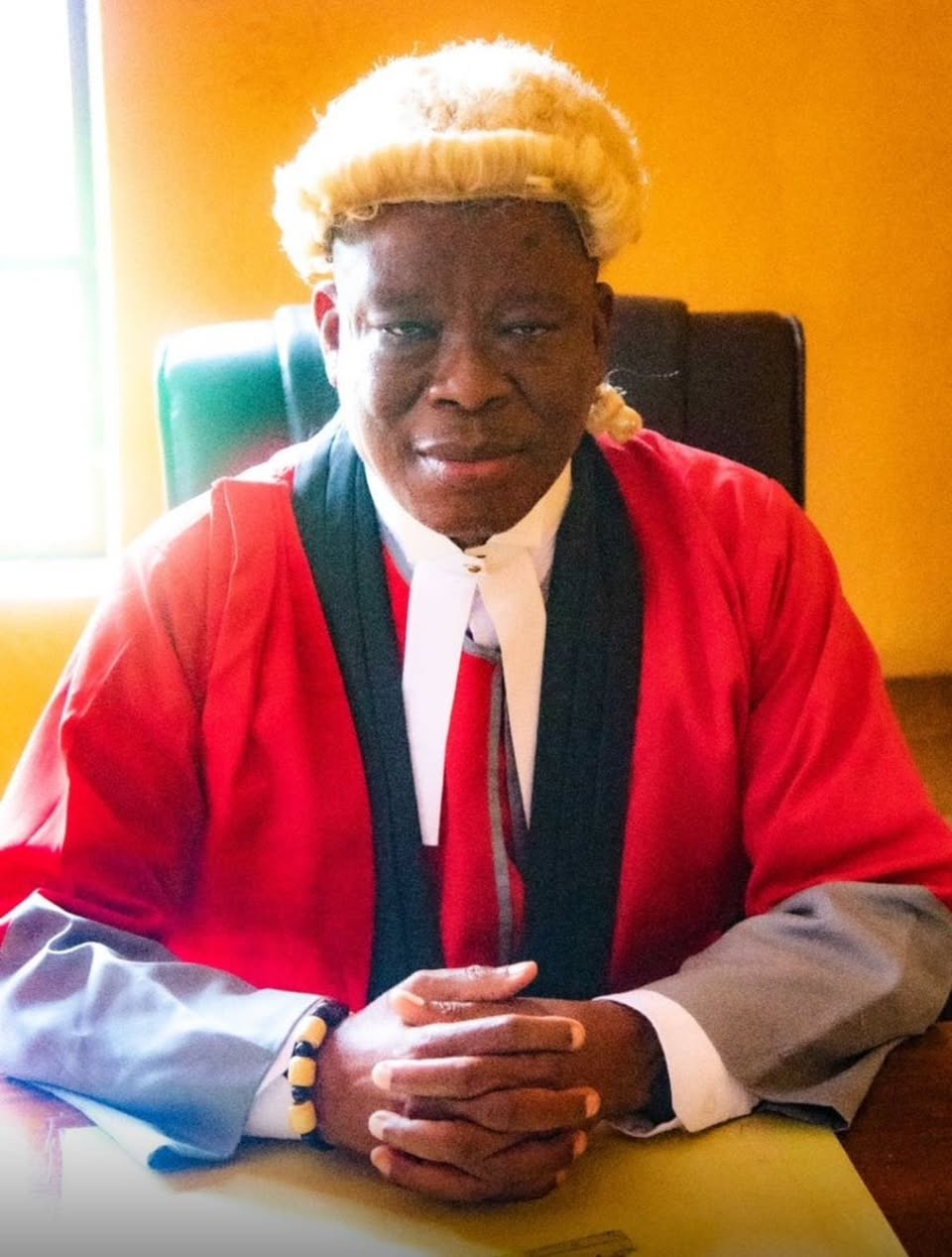By Abu Bakarr Sorie Kamara Esq, Legal Practitioner, OJPLegal
Introduction
This article examines the impact of the new Arbitration Act 2022, considering the efficacy of the party autonomy principle regarding an arbitration proceeding and the role of judges and the Court in Sierra Leone in its entirety under the 2022 Arbitration Act. The 2022 Act has replaced the old English Arbitration Act 1889, enacted under Cap.25 of the Laws of Sierra Leone 1960 and applies to all domestic and international arbitration proceedings in Sierra Leone, including those involving the Government.
Arbitration
Arbitration is a dispute resolution process where two or more parties submit a dispute to an arbitrator or arbitral tribunal to make a binding decision outside of a court of competent jurisdiction.[1] In other words, it is also an adjudicative dispute resolution adopted by disputants, with private individuals making binding decisions that may be recognized, enforced and executed through the machinery of a sovereign state. This implies that arbitration is triggered when a dispute between two or more individuals eventuates. Pursuant to the interpretation section of the Act, arbitration means “a commercial arbitration whether or not administered by a permanent arbitral institution.” In an arbitration proceeding, the arbitral tribunal generally deals with issues of procedures up to the Award, as the power of the tribunal is to prevent the Court from downgrading its authority and maintain the consensus ad idem principle
Court/Litigation
On the other hand, litigation is also an adjudicative process but of a public nature, sponsored by the State and performed by the judicial arm of Government. Thus, while the disputants derive the arbitral process through the principle of party autonomy, the State derives the litigation process through constitutional principles. Therefore, the right of recourse to such courts and direct access of persons are constitutionally protected rights. The independence of the judiciary is guaranteed under the 1991 Constitution of Sierra Leone.[2]
Arbitrators and Judges in Arbitration
Arbitrators and Judges decide disputes in the adjudicatory processes of arbitration and litigation, respectively. They both exercise judicial powers, though the sources of their powers differ. Judges obtain their power to act from the State (or people), usually articulated in the 1991 Constitution, which is a public source. Arbitrators, however, obtain their powers from the arbitration agreement between the disputants, which is a private source. An arbitrator is the individual who decides the issues in dispute between the disputants. Therefore, of necessity, the arbitrator must be a physical person. When an officer is named arbitrator, the reference will be to the individual occupying the office when the dispute eventuates. It is usual to appoint more than one arbitrator to decide a dispute, though in sets of uneven numbers to ensure a majority decision can be reached. The panel of one or more arbitrators constitutes the arbitral tribunal.
A judge is a public officer appointed to decide cases in a law court. The judge, therefore, unlike the arbitrator, is an employee of the state and subject to all the rights and obligations of such employees attached to her office. It is practically now settled in the article that the source of the arbitrator’s powers is contractual and not statutory as the powers of the judge. It is also fully acknowledged that the judge enjoys her status due to her office as a judge. Notwithstanding these, the Act gives the Court powers in an arbitration proceeding. These powers of the Court are elucidated in the subsequent subheading.
Powers of the Court in an Arbitration Proceeding
Part IX of the Act provides for the Court’s presence in an arbitration proceeding. The Act recognizes the principle of party autonomy regarding an arbitration settlement.
This is provided for in section 53(1) of the Act and it states-
“Unless otherwise agreed by the parties, the Court may make an order requiring a party to comply with a peremptory order made by the arbitral tribunal.”
In a situation where the consents of the parties had been sought, the Court has the power of making the following orders- the evidence of witnesses; the preservation of evidence; custody or detention of property; and the granting of an interim injunction or an appointment of a receiver, etc. Section 9 of the Act gives power to the Court to order a stay of proceedings on the substantive claim but only agreed to by the parties. Section 55 of the Act also provides the Court’s powers to support arbitral proceedings, but only with the parties’ consent. It is important to note that in arbitration proceedings, an arbitral tribunal (Court) shall decide disputes in accordance with the terms of the contract and shall consider the usages of the trade applicable to the transaction.
This discussion suggests that, generally, under arbitration laws, there is a well-ordered dichotomy of powers between arbitral tribunals and courts. However, the key question is whether both sides respect this seemingly obvious boundary. It appears that, to some extent, courts are more negatively interventionist, with some judges (particularly at the first instance level) seeking to usurp the powers given to the arbitrator by their powers derived from the Grundnorm, which is the Constitution and the disputants over the dispute. Such usurpation is usually interpreted as evidence of a lack of support for arbitration. It is now commonly accepted that for both arbitration and litigation to thrive, the judge must trust the arbitrator to perform their duty in accordance with the parties’ arbitration agreement and the law. In addition, be willing to enforce the decision made by the arbitrator in accordance with the relevant laws applicable to the particular reference.[3] The Act provides the guiding principles on how the Arbitration proceedings should be carried out or done, viz, resolving disputes fairly and the proceedings to be done expediently to prevent unnecessary delay.[4] The Act emphasizes the importance of the consensus ad idem principle, meaning an arbitration agreement is an agreement by the parties to submit to arbitration all or certain disputes that have arisen or may arise between them. The parties control this agreement and derive power from the private agreement, not state authorities. The Arbitral Tribunal generally deals with issues of procedures up to the Award. Judges and arbitrators are crucial players in dispute resolution, and their functions in the justice system cannot be overemphasized. However, if parties to an arbitration agreement stipulate a clause that touches and concerns an arbitration tribunal, the Court or judge should adhere to it and not inquire into it.
Conclusion
In conclusion, Sierra Leone has made commendable strides in advancing its arbitration legal framework, aligning it to a significant extent with prevailing international standards in the field of arbitration. This legislative development signals the nation’s commitment to promoting a climate conducive to alternative dispute resolution mechanisms, fostering economic growth, and bolstering its standing in the global legal community.
The prospective augmentation of knowledge and expertise among judges, court registrars, and legal professionals represents a pivotal facet of the trajectory towards a more arbitration-aware legal landscape. By nurturing an environment that facilitates the dissemination of information not only to the legal fraternity but also to commercial stakeholders, Sierra Leone endeavours to cultivate a holistic understanding of the intricacies of arbitration. This, in turn, will engender well-informed decision-making processes and engender the effective deployment of arbitration as a preferred means of dispute resolution.
Crucially, it is imperative to underscore that judges’ roles in arbitration proceedings should be circumspect and delimited to forestall any unwarranted interference with the sacrosanct principle of party autonomy. The paramountcy of party autonomy, which underscores the foundation of arbitration, remains inviolate. Thus, judges should exercise restraint to preserve the autonomy of the arbitral tribunal, nurturing a climate wherein parties may freely determine the resolution of their disputes without unnecessary judicial intrusion.
In this vein, Sierra Leone stands poised to reap the benefits of a robust arbitration framework characterized by a judicious balance between judicial supervision and the sacrosanct principle of party autonomy, fortifying its position on the international arbitration stage. The nation’s continued commitment to these principles augurs well for cultivating a legal milieu that is responsive to the needs of its citizenry and aligned with global standards in dispute resolution.
[1] See According to Halsbury’s laws of England 3rd Edition 1 and
Words and phrases legally defined, 3rd ed. Supplement Butterworths 1988 at page 105
[2] See Chapter vii of the 1991 Constitution of Sierra Leone
[3] Ibid…, at 491-492; Jan Paulson, why Good Arbitration cannot Compensate for Bad Courts, Journal of International Arbitration, Vol. 30, No.4, 345-360 (2013).
[4] Section 4 of the Arbitration Act 2022.







